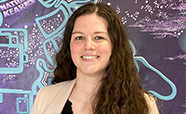People living with type 1 diabetes have the life-long burden of managing their blood glucose levels. To reduce the burden of this disease and improve health outcomes for people living with type 1 diabetes, researchers are focusing their efforts on automating blood glucose monitoring and insulin delivery through "closed loop therapies".
Closed loop therapies use algorithms to recognise blood glucose concentrations from a continuous glucose monitor (CGM) and respond automatically by pumping the appropriate dose of insulin through an automated insulin pump.
The Co-Pilot Trial is seeking participants aged 7-25 years
The Co-Pilot Trial is a 12-month randomised control trial using an advanced hybrid closed loop (AHCL) system (MiniMed™ 780G) in children and youth with less healthy glucose levels. The study will identify if AHCL is an appropriate and safe therapy for those struggling with healthy diabetes control.
While better control of glucose levels is a key outcome for this trial, other features such as burden reduction, improved quality of life and treatment satisfaction will also be explored.
How to participate in the study?
You may be eligible to participate if you (or your child) are:
- aged 7-25 years
- living with type 1 diabetes
- have a history of HbA1c levels ≥ 69 mmol/mol,
- have not previously used a closed loop system
The study has been approved by the Health and Disability Ethics Committees (reference: 2022 FULL 13508).
Please contact the researcher nearest to you:
- Otago Medical School – Dunedin: Professor Ben Wheeler (ben.wheeler@otago.ac.nz) or Dr Alisa Boucsein (a.boucsein@otago.ac.nz)
- Otago Medical School – Christchurch: Associate Professor Martin de Bock (martin.debock@otago.ac.nz)
- Starship Children's Hospital – Auckland: Associate Professor Craig Jefferies (craigj@adhb.govt.nz)
- Te Whatu Ora/Health NZ – Waikato: Dr Ryan Paul (ryan.paul@waikatodhb.health.nz)
- University of Otago – Wellington: Professor Esko Wiltshire (esko.wiltshire@otago.ac.nz
- This study has received funding from Lions New Zealand District 202F, NZ Lottery Health Research Grant, Starship Foundation and charitable funds via Wayne Bowen and Family and the New Zealand Spinal Cord Research Society.



